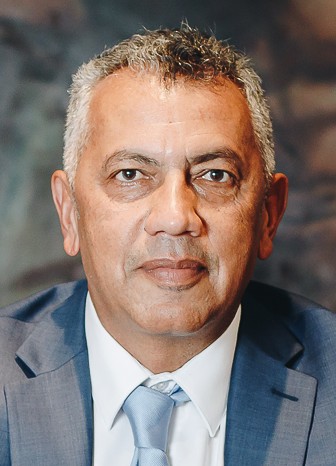Osorio to lead UW Global Health Institute
Jorge Osorio, an expert in epidemiology, virology and vaccines, has been named the next director of the University of Wisconsin–Madison’s Global Health Institute.
Osorio, professor of pathobiological sciences in the School of Veterinary Medicine, has decades of international experience studying emerging diseases — especially viruses and other pathogens making leaps from animal hosts to humans — and ways to prevent their spread with vaccines, antivirals and other public health measures.
The Global Health Institute applies research, education and outreach to advance equitable and sustainable health across Wisconsin and the world. Working across disciplines, GHI fosters deeper understanding of the complex determinants of health and disease and the connections between animal, human and planetary health. In May, Osorio will take over leadership of the institute from Jonathan Patz, Vilas Distinguished Achievement Professor and John P. Holton Professor of Health and the Environment and director of GHI since its founding in 2011.
“I am very excited and honored to lead the Global Health Institute,” Osorio says. “During the past 10 years, GHI has advanced important global health issues under the leadership of Dr. Jonathan Patz and his team. As the new director, I will build on their accomplishments, finding new opportunities for our faculty and students to investigate and find solutions to the world’s current health challenges.”
Osorio is also co-director of the Colombia-Wisconsin One Health Consortium, a joint effort between UW–Madison and Universidad Nacional in Colombia that is studying emerging diseases and the way the complex interactions of living things and the environment affect health outcomes — a concept called One Health.
“Jorge has a wonderful mix of research, teaching, industry and political experience,” says UW–Madison Provost Karl Scholz. “With the platform of GHI and Jorge’s foundational work with the Colombia-Wisconsin One Health Consortium, we are excited to see the institute grow into the future as it expands its work with human, animal and planetary health throughout the world.”
Osorio earned a master’s in veterinary science and doctorate in animal health and biomedical science from UW–Madison and a doctorate in veterinary medicine from the Universidad de Antioquia in Colombia. During more than 30 years of work in academic and industry settings, Osorio has produced more than 130 scientific publications in international journals and 32 patents. Recently, Osorio founded Colombia-based VaxThera, which will produce vaccines and biologicals for the region. He was a co-founder and chief scientific officer of Inviragen, a biotechnology company that developed a vaccine against dengue virus that recently successfully completed Phase 3 clinical trials. He has also developed vaccines against many other emerging infectious diseases.
“Dr. Osorio crafted his professional experiences to be at the ready for rapidly responding to global disease threats like bubonic plague, Zika, and dengue fever,” says Lyric Bartholomay, UW–Madison professor of pathobiological sciences and chair of the committee that recommended Osorio’s appointment. “He has tirelessly worked to create global connections, anchored here at UW, to detect and respond to infectious diseases that impact people living in low- and middle-income countries.”
Osorio has served as vice president of research and government affairs for the Vaccine Business Division of Takeda Pharmaceuticals, and worked for Heska Corporation in Colorado, Merial LTD in Georgia and Chiron-PowderJect Vaccines in Wisconsin.
“At GHI, I will encourage multicultural, international research collaborations that will bring equity and diversity to our campus,” Osorio says. “I will look for opportunities for international and U.S. students and researchers to work together and connect, and work to enhance the reputation and reach of UW science throughout the world.”
Jonathan Patz became director of the Global Health Institute when the university combined the Center for Global Health and the Global Health Initiative. GHI’s portfolio expanded in the last decade, growing global health educational programs, grants and awards, interdisciplinary collaborations across campus, and public programming.
Under Patz’s leadership, GHI was a key partner in establishing several campus-wide initiatives, including the Undergraduate Certificate in Global Health, the 4W (Women & Wellbeing in Wisconsin & the World) Initiative, UniverCity Alliance, the Health-Oriented Transportation Initiative and the Graduate/Professional & Capstone Certificates in Global Health Online.
“We are very grateful for Jonathan’s many contributions during his time as director of GHI, as we look forward to learning from his ongoing important work on climate change and planetary health,” Scholz says.





